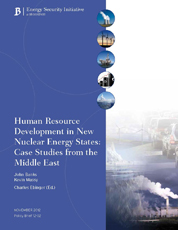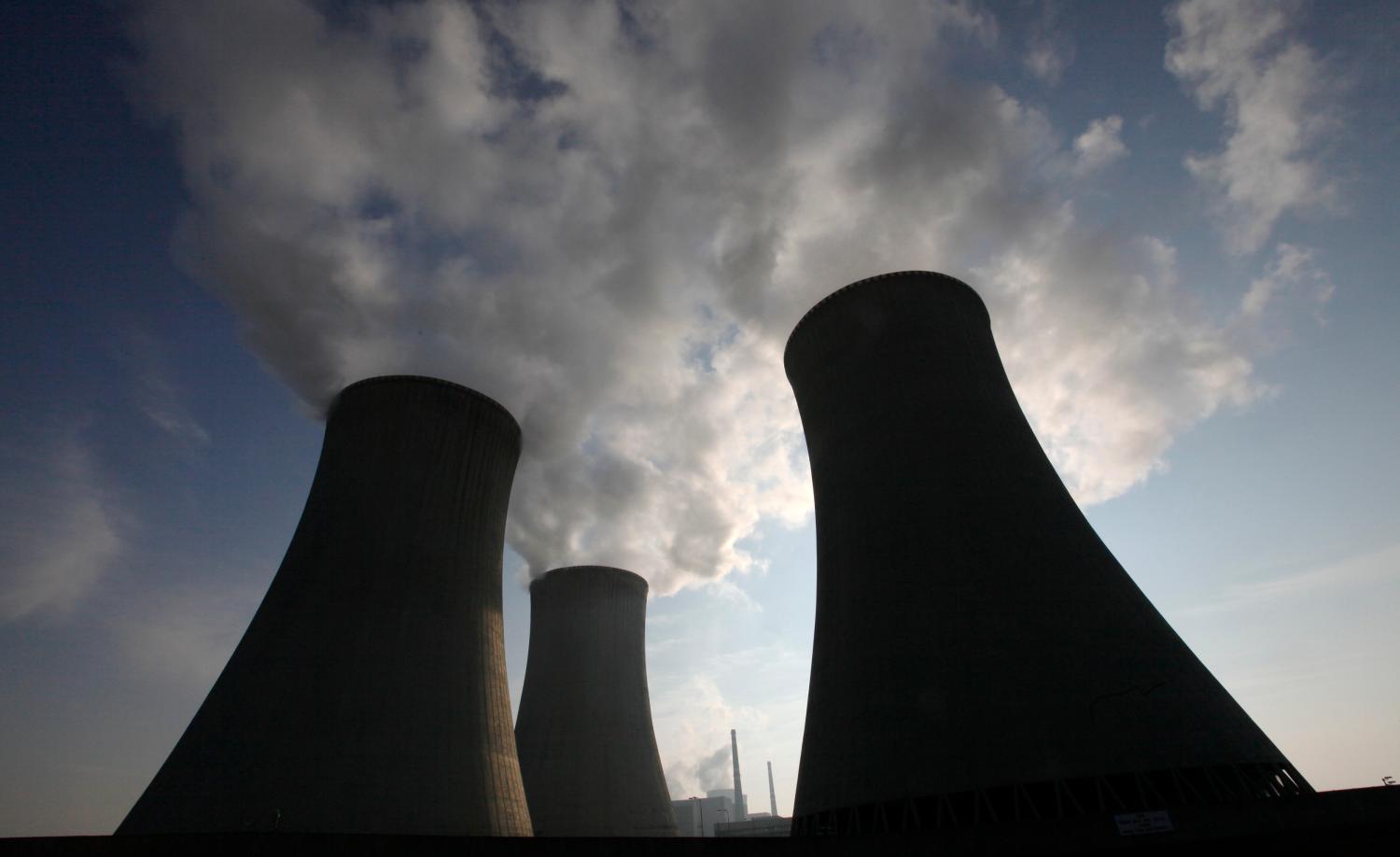 With the United Arab Emirates, Jordan, and Turkey all continuing pursuit of civil nuclear energy programs, the Middle East is likely to play host to the first newcomer civil nuclear energy states of the 21st century. After a long hiatus, the likely entry of several new states into the global nuclear power sector presents a number of unprecedented challenges. To meet these challenges, it is essential that new nuclear energy states develop the institutional and human capacity to run their programs competently and sustainably. Against this backdrop, this paper assesses human resource development (HRD) in the United Arab Emirates (UAE), Jordan, and Turkey against these two criteria.
With the United Arab Emirates, Jordan, and Turkey all continuing pursuit of civil nuclear energy programs, the Middle East is likely to play host to the first newcomer civil nuclear energy states of the 21st century. After a long hiatus, the likely entry of several new states into the global nuclear power sector presents a number of unprecedented challenges. To meet these challenges, it is essential that new nuclear energy states develop the institutional and human capacity to run their programs competently and sustainably. Against this backdrop, this paper assesses human resource development (HRD) in the United Arab Emirates (UAE), Jordan, and Turkey against these two criteria.
With widely varying economic, political, and social contexts, each of the three countries under review has different HRD requirements and objectives. However, while each country has unique challenges related to its individual circumstances, it is also possible to identify areas of relative success and concern with regard to leading HRD practices.
With a high level of sovereign wealth and a well-formulated, well-articulated strategy for the implementation of civil nuclear power, the UAE has the most comprehensive approach to HRD among the countries under review. The principal challenges for the UAE relate to its ability to reconcile the extensive needs of its civil nuclear program and the objectives of recruiting the requisite number of qualified nationals into training programs and professional positions. Jordan faces more challenges than the UAE with regard to preparedness for a civil nuclear program. While the country has a large educated population the country has far fewer financial resources. Further, some of the biggest obstacles with regard to its nuclear program are the result of a lack of public-sector coordination and communication. Finally, while Turkey has struggled to develop commercial-level nuclear power, its nuclear-related education programs have been established for decades. With no commercial-scale operational experience, however, the host country may be vulnerable to a situation of information asymmetry its regulator may not have sufficient expertise and capacity to competently oversee the construction and operation of the new design they have chosen for construction.
Based on the conclusions from the three country case studies, the paper offers a series of recommendations on competence and sustainability-related HRD risks for the three reviewed countries and emerging market nations looking to enter the civil nuclear sector.
These recommendations are:
• HRD should be a central part of a new nuclear energy state’s strategy
• HRD programs should place a large emphasis on safety culture
• Quality control initiatives should include merit-based recruitment, international benchmarking and vendor involvement
• Stakeholder engagement should be a core element of new nuclear energy programs’ HRD strategies
• HRD strategies should be designed around the operational needs of the nuclear industry rather than around high-profile academic programs
• New nuclear energy states adopting new reactor technologies should allocate additional HRD time and resources to become an “intelligent customer”
• National quota policies should be flexible to the needs of new nuclear programs
• Regional cooperation should not be relied upon as the primary or major source for HRD in the nuclear sector
The Brookings Institution is committed to quality, independence, and impact.
We are supported by a diverse array of funders. In line with our values and policies, each Brookings publication represents the sole views of its author(s).






